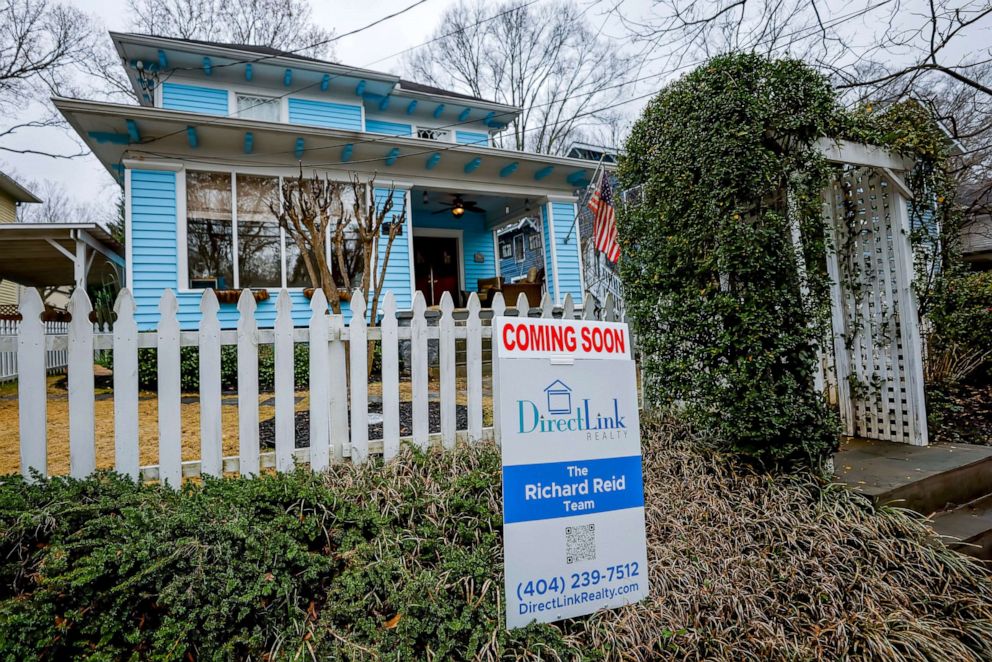Rising interest rates create a new challenge for first-time homebuyers
The Federal Reserve is expected to increase interest rates next month.
The housing market has been unforgiving to first-time buyers like Kirstin Harris.
“You have to be so competitive,” she told ABC News. “By the time we even like a house to put in an offer, it's already gotten an offer that's been accepted.”
Harris and her family are trying to purchase their first home in Virginia. But like many other buyers nationwide, she’s facing surging prices and bidding wars – fueled by strong demand and a lack of available homes.
“The new inventory that I'm seeing coming on has been increased by about $50,000,” she said.
In a cutthroat and pricey market, aspiring homeowners now face a new challenge: rising interest rates.
At its meeting next month, the Federal Reserve is set to increase borrowing costs by raising interest rates as part of an attempt to cool surging inflation.
“Basically, we have inflation because there's too much demand in the economy for the available supply,” Brookings Institution senior fellow David Wessel told ABC News. “So the whole point of the Fed is to slow the increase in demand. They want fewer people to borrow and they want people who borrow to borrow less.”
Interest rates have already been rising in anticipation of the Fed’s announcement.
The rate on a 30-year-fixed mortgage spiked above 4 percent this month for the first time in nearly three years. According to consumer financial services company Bankrate, that means someone borrowing $300,000 to buy a home today is paying $143 more every month than in November, when rates were closer to 3 percent.
“It definitely makes it more unaffordable,” Washington, D.C.-based realtor Roger Taylor told ABC News.
Rates are still low by historical standards; a 30-year-fixed mortgage rate was near 5 percent in mid-2018.
But Taylor said first-time homebuyers already overwhelmed by sky-high home prices are trying to lock in a purchase now before rising rates increase up their monthly payments even more.
“We saw that a large number of people started giving us calls in January because of these rate increases,” he said, adding the typically-busy spring housing market “came early.”

Real estate brokerage Redfin reported 55 percent of homes that went under contract in the past month had an accepted offer within two weeks on the market. Taylor said many houses sell in a matter of hours.
“It's insane,” he said. “Right now inventory is really low and competition is pretty high.”
The intense competition is only making it more difficult for a generation of first-time buyers to get a foothold in the housing market.
Thirty-four-year-old C.J. Reaves moved from Virginia to Georgia when the pandemic hit and his work as a digital live operator went remote, hoping to buy his first home.
“The homes have increased at least 30 to 50 thousand [dollars],” Reaves told ABC News. “I feel like to be comfortable and not live check to check, I think I'm going to move more in a cheaper area and so I can live comfortably.”
He’s now looking for a home in North Carolina.
“I was supposed to go see one home, and I thought that was going to be the home,” he said. “Literally it was gone by the time I sent it to my realtor.”
Reaves added he’s keeping a close watch on how rising rates could affect his monthly payments if he is able to put in an offer.
“You must be paying attention to interest rates, he said. “Or, you know, you could find yourself in a hole.”




